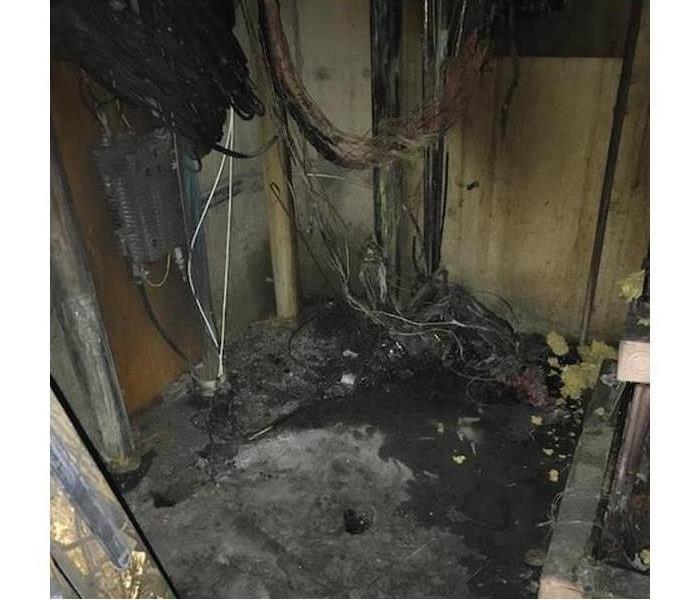Ten Fierce Fire Facts Brought To You By SERVPRO
1/31/2022 (Permalink)
Here are 10 important things to know about fires.
1. In a fire, more people die from inhaling smoke than from the flames. Never think that if you avoid the flames you are safe. Always keep away from smoke.
2. Soot is a coating of fine, black dust created when wood, coal, or oil-based substances are burned. These carbon particles float into the air and settle anywhere. Inhaling soot can caused severe lung deficiencies or even death.
3. If soot contaminates items in your home or business, a fire restoration service provider like SERVPRO of Southwest Jefferson County must assess the damage to see if restoration is possible.
Need Fire Restoration Advice Or Services? Call SERVPRO Of East Louisville At (502) 897-3608
4. The worst possible effect of soot is its tendency to cause cancer and cause serious defects in newborns. Soot produces polycyclic aromatic hydrocarbons. These hydrocarbons are responsible for gene mutation for particular groups of genes. They can cause birth defects and increase the chances of getting cancer.
Water’s Good And Bad
5. Water’s great at putting out most fires but the water itself can cause great damage. You must make sure, after the fire is out, that your home or business is completely dried. If you don’t, mold, mildew, and other consequences will lead to further damage and loss. This is why SERVPRO provides industrial dehumidifiers and air movers to dry saturated carpets, padding, furniture, and any other wet items.
6. Mold colonies can begin to grow just 48 hours after water damage occurs. The combination of fire, water, and mold damage to your commercial property or home could result in a complete loss if not handled properly. See our posts about mold, mold myths, and how to clean up mold.
7. Use caution if you decide to do some of the cleanup after a fire. Never start your cleaning process until you’re properly attired. Wear heavy-duty gloves, safety goggles, and a face mask. Carefully cover your nose and make sure your safety glasses have no place for dust or soot to get into your eyes.
Why Firefighters Break Windows And Cut Holes In Roofs
8. Firefighters are true heroes. However, they often must break windows and cut holes in the roof of buildings on fire. As a fire burns, the fire moves up and down and across, growing very fast. Firefighters break windows and cut holes in roofs to provide ventilation that slows the fire’s growth. Ventilation also helps get rid of dark smoke that makes it hard for firefighters to see where they’re going. The holes and broken windows help firefighters fight the fire more quickly. The bottom line is that breaking windows and cutting holes in roofs help save lives and property.
9. Firefighters will also cut holes in walls at times. That’s not about ventilation. It’s done so the fire department is sure that the fire is completely out. Fire departments don’t want to risk leaving a fire that’s not visible but is still active inside the walls or in other hidden places.
10. If you have a fire, get a copy of the fire report. In most areas, a fire report is a public document. Ask for it at the fire department or fire marshal’s office. The fire report will help you with information that your insurance company and other official offices may request.
Here To Help
The team at SERVPRO of Southwest Jefferson County has specialized training and experience in fire restoration services and natural disaster cleanup.
Call SERVPRO of East Louisville 502-897-3608 anytime, 24/7.






 24/7 Emergency Service
24/7 Emergency Service
